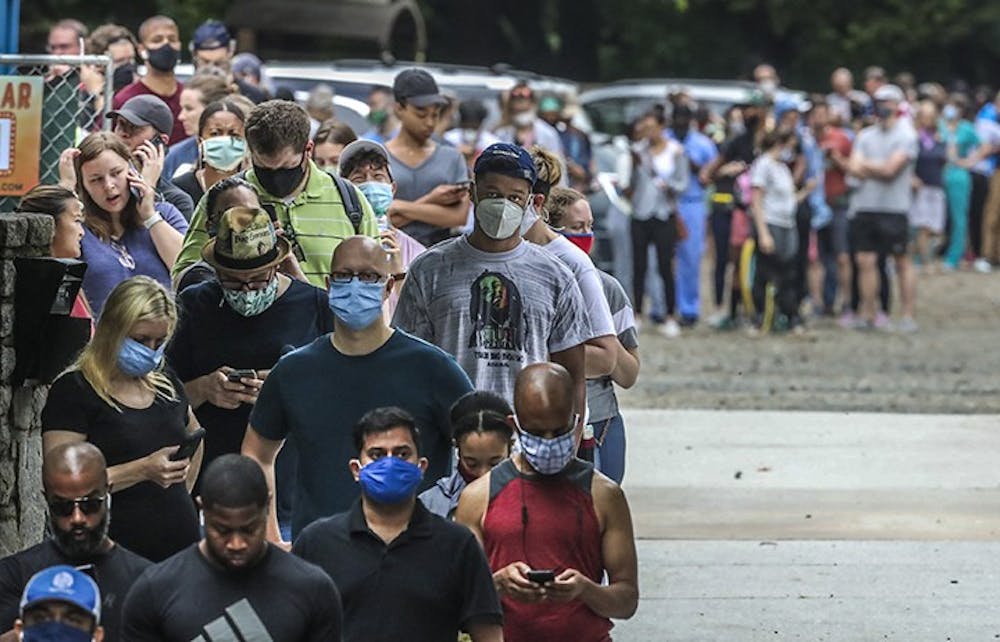Blue Georgia is a pleasant surprise, but it was going to happen eventually.
In the 2016 American elections, Google showed states as purple when races were too close to call.
For a brief amount of time, less than an hour from what I saw, I witnessed rare purple Texas. At a basic level, I thought it was funny. Texas. Purple. Purple Texas, the state seen as the catch-all example of conservatism, the easiest state for a Republican presidential candidate to win in the last few decades. At a deeper level, for that brief amount of time, I was an overjoyed 17-year-old.
That one moment meant to me that maybe, just maybe, against all gerrymandering, intimidation, voter suppression and outright lies used to dissuade Democrats from voting, there was hope for places such as Texas. There were consequences for assuming you could win a whole section of the country simply by assuming you know its politics.
The South is not a monolith, no matter how much gerrymandered districts or voter suppression try to keep it that way. The cultural perception of Southeast America being either Florida, Atlanta or a bunch of rural racist hicks has been untrue for decades, and that perception partially allowed this surprise to happen. Democrats in the South are treated like a rarity, weak opponents, easy scapegoats. I know this because I am one, and I spent the vast majority of my life living here. It made me and several million people, thousands of whom did far more than I did to sway this election, be discounted by commentators and the Republican Party.
To laugh off a whole political party is to lose, and to lose (at least to most of the country) in a shocking twist of fate. It doesn’t matter what party it is, or where it is: Not taking the other side’s efforts to get out the vote seriously is not the move of a winner.
Georgia will have a recount, no matter who wins: The presidential election is in the 0.5% margin to trigger it. However, Joe Biden is ahead. He has been ahead for quite some time now. The fact that such a huge hissy fit is being thrown by Twitter users, political pundits and the president alike means people were ignorant of the huge, yet often disenfranchised, Democratic voter base in the South, and willingly ignorant, at that.
Did Democrats lose in South Carolina? Yeah. Did they lose Florida? Yeah. However, we still have one Democratic representative, as does Mississippi; and North Carolina has five. North Carolina still has a Democratic governor. Georgia’s special election for the Senate will be a runoff between a Republican and a Democrat. Plenty of others won races in state elections across yet more typical red states.
And mostly importantly, there’s blue Georgia.
This is not a fluke. There was a herculean effort of leftist Georgian leaders such as Stacy Abrams. There was a herculean effort by those who went door-to-door to register voters and those who campaigned for Democrats, from moderate to socialist, even if they thought those candidates had a fat chance of winning. The effort of those who simply pestered their friends and family to vote until they did, regardless of how long the lines were, mattered. All of that paid off.
This is the start of representing the South as it is. It is not a monolith, an effortless Republican voting bloc. It is varied and rich, just like the rest of the United States, with its cultures; its lifestyles; its beliefs; its individuals.
And now, it’s time to start actually representing that in our government.

